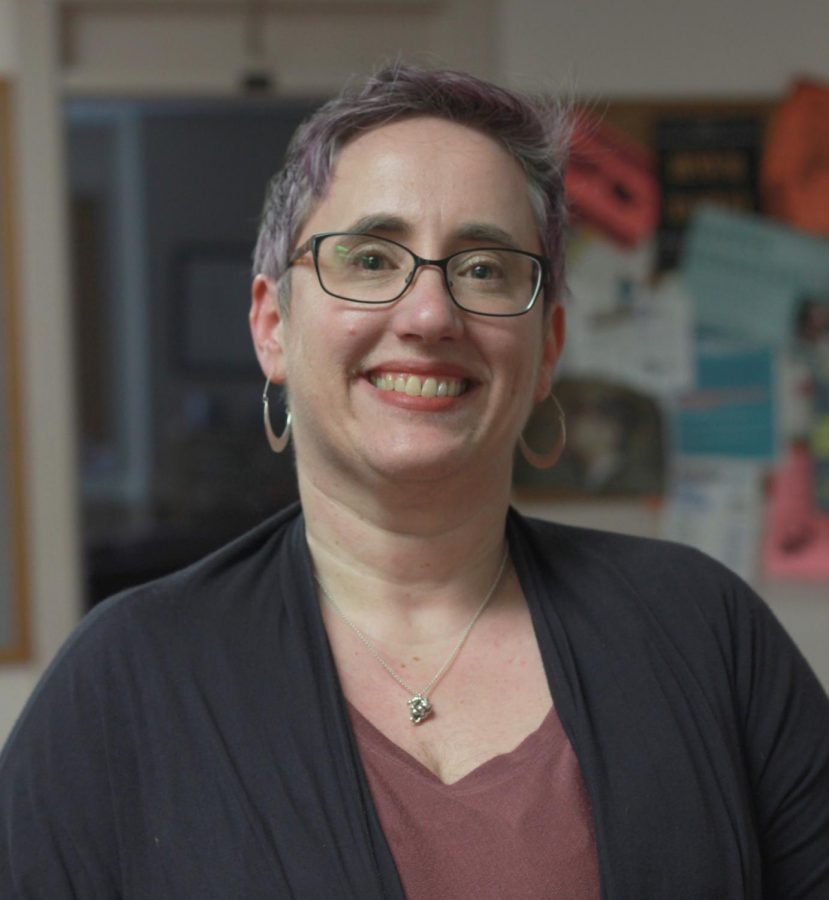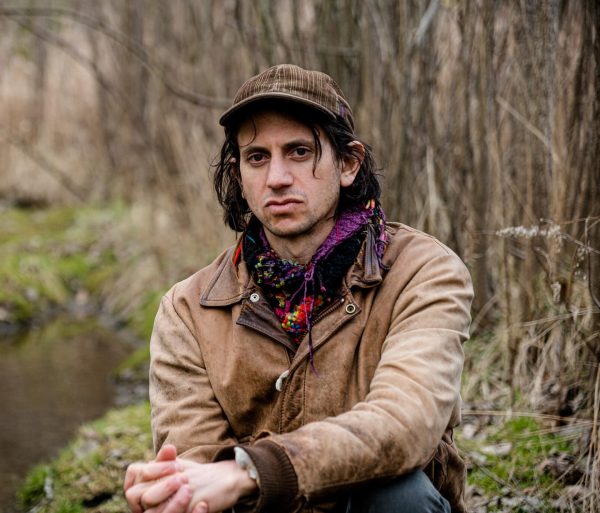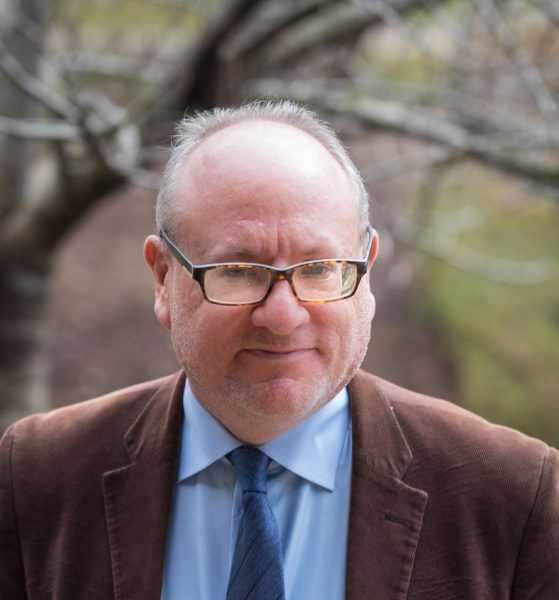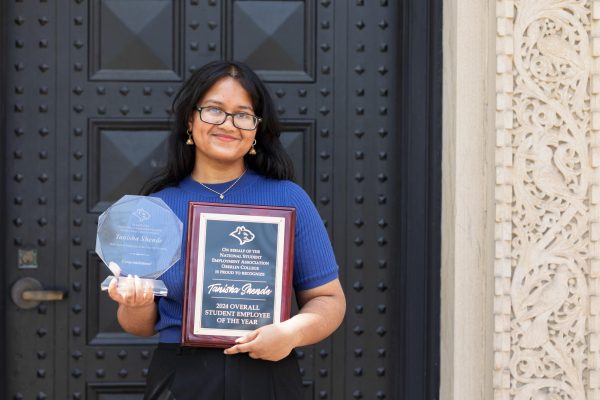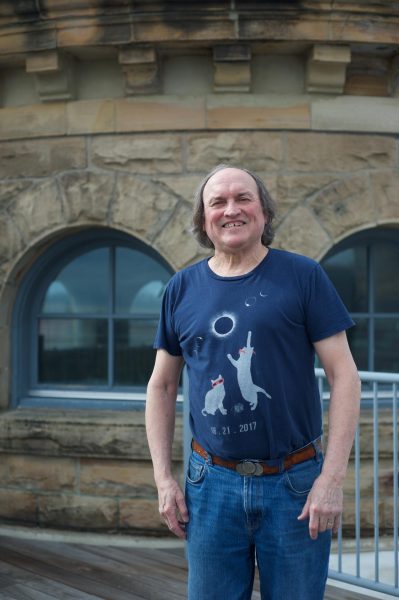Off The Cuff: Rabbi Megan Doherty
Rabbi Megan Doherty
Rabbi Megan Doherty, director of Hillel and Jewish Campus Life, is approaching the end of her third year at Oberlin. Hillel and Jewish Campus Life build community as well as provide various religious and cultural programs for students and community members, and Rabbi Megan works alongside students to cultivate a welcoming environment for all. She has previously worked at the Slifka Center for Jewish Life at Yale University and the Mishkan Ha’am Reconstructionist community in New York. Additionally, she was recently a contestant on Wait, Wait … Don’t Tell Me!, NPR’s weekly hour-long quiz show. Rabbi Megan currently lives in Oberlin with her daughter and wife.
This interview has been edited for length and clarity.
What are Hillel and the Kosher-Halal Co-op? What role do you think they serve on this campus?
Hillel is an organization to support and cultivate Jewish life, community, and experiences. I think of my job as empowering Jews on campus to build the kind of Jewish lives and identities they want, so that often means religious services, holiday services, programming speakers, education, informal educational opportunities, text study — all those different kinds of things. That’s Hillel, and it’s a student organization that I support.
KHC is an independent co-op that’s not part of [the Oberlin Student Cooperative Association], and it serves as a space for Jewish and Muslim students who want to both eat together in a co-op experience and observe their respective dietary laws. My role in KHC is, well, the Hebrew is Mashgicha Mora; it’s like an educational supervisor. They have students who are trained members of the co-op who supervise the different kinds of dietary restrictions, and I am their backup phone call.
So you’re kind of like the co-op parent?
I handle things like, you know, if we had a spoon that’s designated for meat, and we put it on a counter that is a dairy counter, and there was salt that was spilled. So now between the salt and the meat and the milk — what needs to happen to the counter and the spoon and questions like that have very technical answers. I can help them figure out those things.
How did you find your way to becoming a rabbi? What would you say were your defining moments in your journey to rabbi-hood?
Oh my goodness. That is a great question. So the very, very short answer to that question is that it is the job I found where I could do all of these things that I love. I keep learning all the time, and I could teach and have a voice in the world around activism. I could do counseling work and be really close to people at transformative moments in their lives. I could also be a little bit of a performer, be on stage, and do all of that while being holistically Jewish and have that at the core.
The slightly longer version is this: I graduated from a school with no majors, so I have a degree in liberal arts. I had been active in the Jewish community when I was in college and wound up at a family camp with my mom and my brother. There were all these rabbis and I was like, “I want to do that. I think I could do that. That would be really cool.” So I talked to them and took three years between graduating college and starting rabbinical school. And so I did an AmeriCorps year and worked in nonprofit for a while and went to Israel. I went there because I needed Hebrew, which I didn’t have, and then went to rabbi school.
What has been your experience as a woman rabbi?
Oh, that’s a great question. It has mostly been really delightful, that I really feel the gift of the generations of women who came before me. At least half of my teachers in rabbinical school were women rabbis. The first women rabbis in the modern U.S. were ordained in the ’70s. And so by the time I got through rabbinical school in the early 2000s, there was a generation of women rabbis to follow. I feel grateful for that work that was done so I didn’t have to fight that fight. We exist in a patriarchal society and a world where, you know, there’s misogyny, and #MeToo happens in synagogues and Jewish institutions too. Those things have been present for me in the way they’ve been present for other professional women my age, which is sad and frustrating.
What challenges have you faced as a woman rabbi?
On the one hand, I went to [a] rabbinical school that was sort of jokingly referred to as the queer rabbinical school, and I had worked at Yale, which is the “Gay Ivy.” I went to the Reconstructionist Rabbinical College, which had that reputation then, and it was interesting because the proportion of queer students wasn’t actually that high, but the proportion of queer faculty was actually pretty high when I was there. So many of the really hard fights had been fought. I think for the trans rabbis, their story is different. I have trans rabbi friends, and I think their story of their fights were more recent. But as for being lesbian, I wasn’t pushing to get into school. I didn’t have to fight that fight to find a job. It’s easier than I think people imagine it.
At the same time, you know, there have been issues. I lived in Israel for a while after I graduated, and being a woman rabbi there is very weird, uncommon, not accepted even by secular Israelis. In the Orthodox world, there are very clear gender roles, and men can be rabbis and women are not. So that was a struggle, to come out as a newly minted rabbi then be in a place that didn’t really accept me as a rabbi. I’ve worked in some organizations where there were inherited sexist and misogynist structures, and some experiences working for men were challenging.
I feel like I’ve had personal experiences of pushback against being a woman rabbi, a queer rabbi, or a gay person. I feel for the most part, though, I haven’t had to deal with major institutional or structural struggles. It’s been more about a person than the structure of institution, which I feel like is a bit of a gift from my teachers. I know they were pushing against institutional structures to make space for that.
Do you feel like the structure of progressiveness in Judaism has been reformed such that there’s more space for others?
Within most spaces within liberal Judaism and progressive Judaism, I think that’s true. I think that there’s places where that’s not true, but there are probably pockets in larger spaces where it’s less true. But in my own lived experience, I feel like I haven’t had to face those structural obstacles. Maybe it’s also because I haven’t wanted to be in places where I would have to do that. I worked at Yale, where I was the only out clergyperson on campus for most of the time I was there. It’s an institution with lots of historical baggage, and so I wound up holding a lot of space for queer students from all different faiths. At the same time, I was welcomed and supported and loved by a lot of people in the institution. So I didn’t feel like I was in a weird place. I knew that it was just me, and I wanted to be at Oberlin.
Oberlin feels like a really natural place for me to be, for lots of reasons. One of them is that in some ways, I’m not “queer enough” to be here. This is a very great place to be all these parts of who I am and to be connecting to students around all these other pieces of who they are and aren’t together.
How has working with Oberlin Hillel community shaped your view of the younger generation of Jewish people, and what impact do you think Hillel has had?
I really like that degree of passion and investment that Jewish kids on this campus have for their Judaism, the way they own it and shape it and make it theirs. It makes me really excited about what the Jewish world is going to be like in 20 years. My hope is that what we are offering at Hillel are the tools to say, “Here is this tradition that is yours. You own it and you can be familiar with it. Take it and shape it and use it to build structures and meaning in your life, find community, and make meaning from all the things that have happened.” That’s my hope. I think sometimes it works better for some people than others.
Being a queer woman with purple hair signals a bunch of things. People have lots of feelings about that. So by not even opening my mouth, there was a lot of work being done for the ways that I exist in the world. That’s something that’s still true, and I think that’s a good thing.


